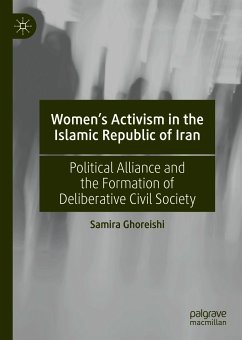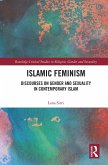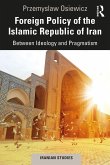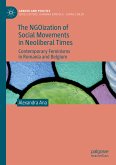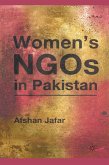Through an intersectional feminist re-reading of the Habermasian theoretical framework, this book analyses how women's activism has developed and operated in the Islamic Republic of Iran. Chapters look at three key areas of women's activism in Iran: how women deliberately engaged with media activism despite the government's controlling and repressive policies; women's involvement in civil society organisations, institutions and communities, and cooperation through multilevel activism; and women's activism in the political sphere and its connection with media and civil society activism despite the theocratic system. Drawing upon interviews, analyses of journal and newspaper articles and documentary/non-documentary films, as well as personal experiences, observations and communications, the book examines to what extent Iranian women's rights' groups and activists have collaborated not only with each other but with other social groups and activists to help facilitate the formation of a pluralist civil society capable of engaging in deliberative processes of democratic reform.
This book will be of interest to scholars in Gender Studies and Middle Eastern Studies, particularly those who study women's and other social movements in Iran.
Samira Ghoreishi is an Iranian feminist researcher and women's and children's rights advocate based in New Zealand. Her scholarship focuses on analysing women's public activism in non-secular and non-democratic contexts.
Dieser Download kann aus rechtlichen Gründen nur mit Rechnungsadresse in A, B, BG, CY, CZ, D, DK, EW, E, FIN, F, GR, HR, H, IRL, I, LT, L, LR, M, NL, PL, P, R, S, SLO, SK ausgeliefert werden.

